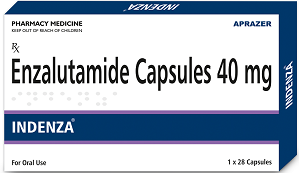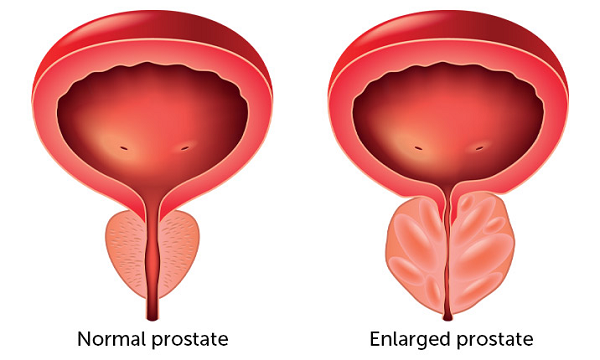How to Manage Castrate-Resistant Prostate Cancer (CRPC)
Castrate resistant prostate cancer
 It also known as hormone-resistant or hormone-refractory prostate cancer, grows when the testosterone levels are below or at the castrate level. Your healthcare provider will determine whether you have castrate-resistant prostate cancer if your blood test reports show that your PSA (prostate-specific antigen) level is increasing while your testosterone level is significantly low. PSA doubling time and imaging tests will help doctors plan your treatment procedure.
It also known as hormone-resistant or hormone-refractory prostate cancer, grows when the testosterone levels are below or at the castrate level. Your healthcare provider will determine whether you have castrate-resistant prostate cancer if your blood test reports show that your PSA (prostate-specific antigen) level is increasing while your testosterone level is significantly low. PSA doubling time and imaging tests will help doctors plan your treatment procedure.
Management for castrate resistant prostate cancer
Following are the suitable treatment options for people having nonmetastatic castrate resistant prostate cancer. Your doctor or healthcare team will suggest ideal treatment plans according to your health condition, age, and other factors.
-
Hormone therapy
Hormone therapy is one way to manage this cancer if your PSA level is increasing, even though there are no signs or symptoms of prostate cancer. With the help of hormone therapy, certain hormones will be changed or blocked in order to slow down the spread and growth of cancerous cells. Along with your current hormone therapy, doctors will suggest effective medicine such as Indenza to treat CRPC. Chemotherapy can also be combined with hormone therapy in order to provide the best outcome.
-
Chemotherapy
One of the ideal options to treat castrate-resistant prostate cancer and reduce the symptoms is chemotherapy. The chemotherapy management process includes using anti-cancer drugs or medicines to destroy the cancerous cells.
-
Targeted therapy
Targeted therapy includes effective drugs and medications such as Indenza 40 mg that help target particular molecules or proteins in cancerous cells and stop the spread and growth of cancer to limit the damage caused to normal cells. Targeted drug therapy is mostly used to treat metastatic castrate-resistant prostate cancer, which includes a particular type of genetic mutation.
-
Radiation therapy
It is one of the main treatment processes for destroying cancer cells, relieves patients from urinary problems caused by the tumor, and relieves the pain if cancer has spread to the bones. Radiation therapy is especially given to the areas that cause symptoms, including using high-energy particles or rays to destroy cancerous cells.
-
Bone-targeted therapy
According to research, around 90% of individuals with metastatic castrate resistant prostate cancer tend to develop bone metastasis, where cancer spreads through the bone regions and causes severe pain. Patients are also at high risk of developing pathological fractures, skeletal complications, spinal cord compression, etcetera. The most common options for treating bone metastasis are bisphosphonates like zoledronic acid, corticosteroids like dexamethasone and prednisone, pain medicines, kyphoplasty, systematic radiation therapy, and external radiation therapy.
-
Clinical trials
You must consult with your healthcare provider regarding clinical trials and more ways to manage prostate cancer. Clinical trials are a new and innovative way to treat and prevent cancer. Along with clinical trials, you need to regularly perform imaging and phase testing to know if the prostate cancer has spread or grown to other regions. Effective medicine like Enzalutamide helps to treat castrate resistant prostate cancer. You can learn about enzalutamide price and the right dose or strength from your healthcare provider.
Conclusion 
All the above methods are the best management process for metastatic castrate-resistant prostate cancer, help slow the growth and spread of cancerous cells, improve quality of life, increase life expectancy, and relieve castrate resistant prostate cancersymptoms. As CRPC is a fatal and incurable illness, early diagnosis and treatment options would help improve the prognosis. There are several other treatment and management ways that are under investigation and research and will soon add to therapeutic options and would be available to patients.




 :
:  +91 – 9999064250 | 9811604444 | 9811604424
+91 – 9999064250 | 9811604444 | 9811604424


